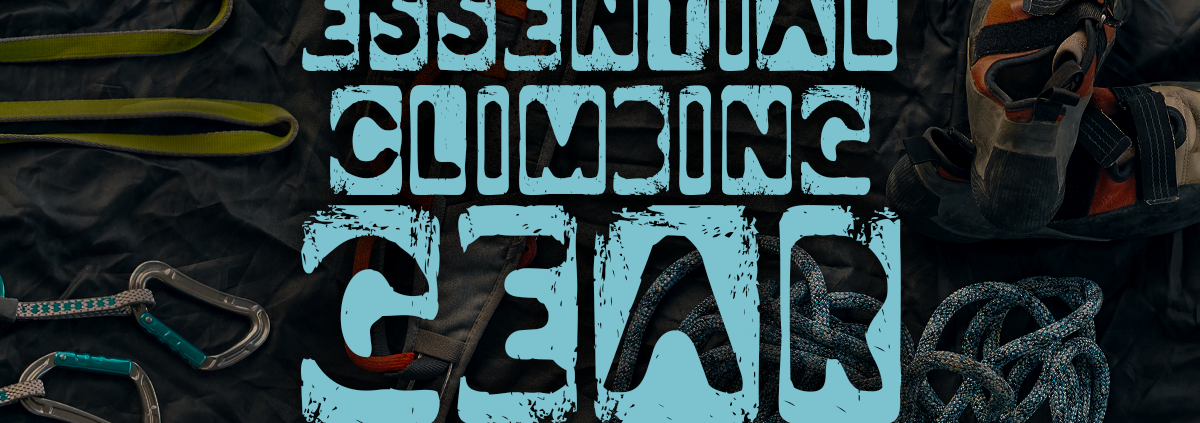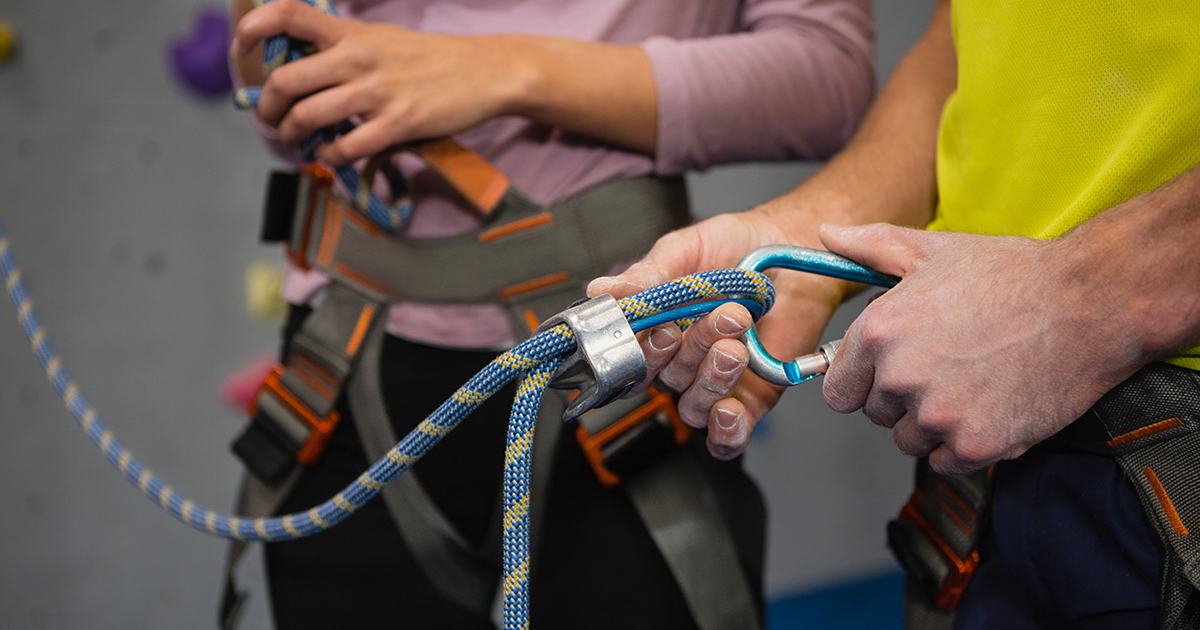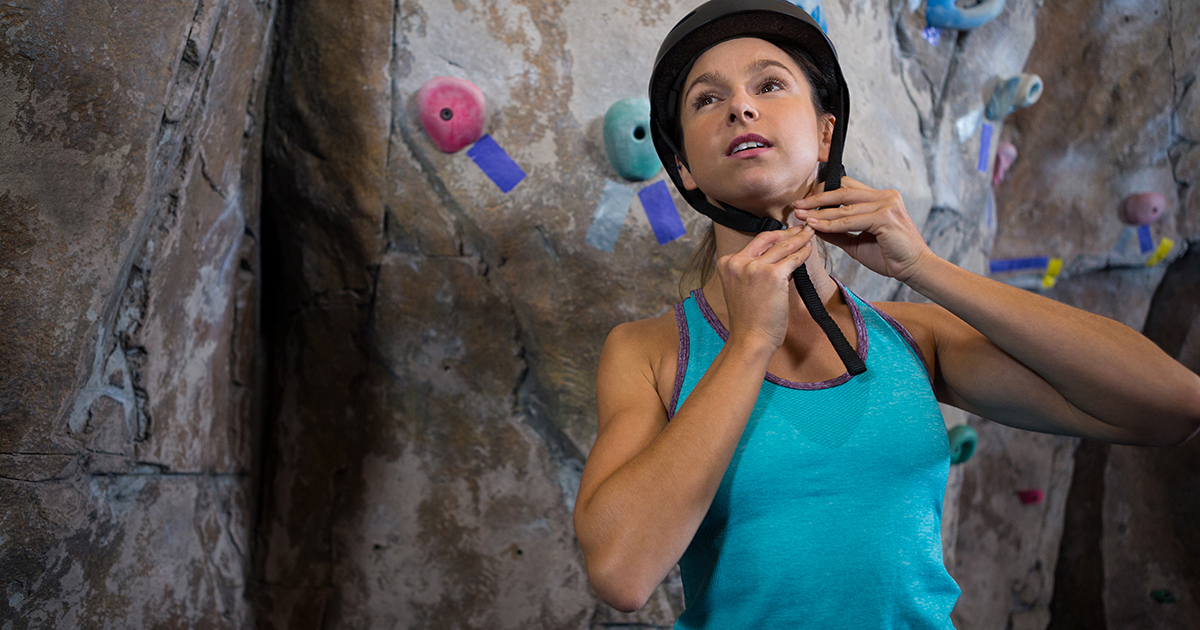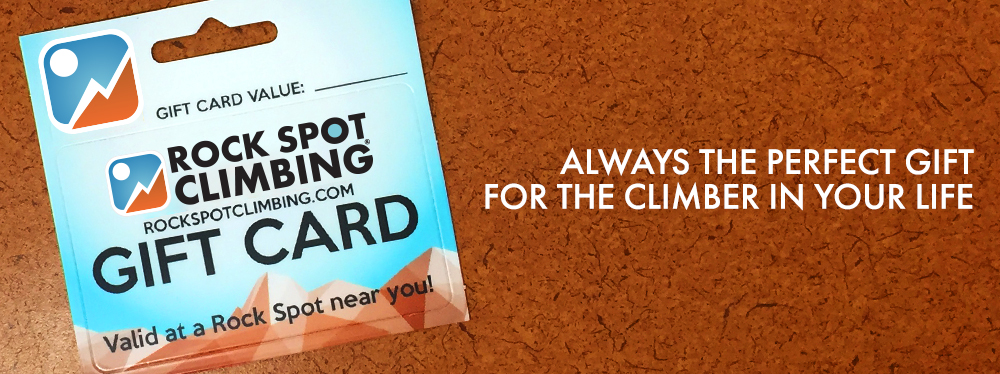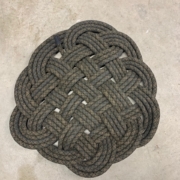Essential Climbing Gear: A Comprehensive Guide
Climbing is a thrilling sport that offers both physical challenges and breathtaking experiences in nature. Whether you’re just starting or are a seasoned climber, having the right gear is essential for safety and performance. This guide will cover the must-have climbing gear, including shoes, harnesses, chalk, and more.
Climbing Shoes
Climbing shoes are arguably the most critical piece of equipment for any climber. They provide the grip, support, and sensitivity for effective climbing. Depending on what brand and features you’re looking for, climbing shoes can run between $100 and $200 dollars. Here’s what to consider when choosing climbing shoes:
Types of Climbing Shoes
- Neutral Shoes: Ideal for beginners, neutral shoes have a relaxed fit and are comfortable for extended wear. They are great for multi-pitch climbs and all-day comfort.
- Moderate Shoes: These shoes feature a slight downturned shape, offering a balance of comfort and performance. They’re versatile enough for sport climbing and trad climbing.
- Aggressive Shoes: Aggressive shoes are designed for advanced climbers. They have a pointed toe for maximum precision on small footholds. They are best suited for sport climbing and bouldering.
Key Features to Look For
- Fit: Climbing shoes should fit tightly but not painfully. A good fit enhances performance, but avoid overly tight shoes that can lead to discomfort.
- Material: Leather shoes tend to stretch over time, while synthetic options maintain their shape. Consider your climbing style when selecting the material.
- Sole Type: Rubber soles offer varying degrees of friction. Softer rubber provides better grip, while harder rubber is more durable.
Recommended Brands
- La Sportiva: Known for their innovative designs and comfort.
- Scarpa: Offers a range of shoes for various climbing styles.
- Evolv: Renowned for their performance-driven models.
Harnesses
A harness is essential for keeping you secure while climbing. It connects you to the rope, ensuring safety during ascents and descents. Harnesses run between $60 and $100 so when selecting a harness, consider the following factors:
Types of Harnesses
- Sport Harnesses: Lightweight and designed for sport climbing, these harnesses often have fewer features but offer maximum mobility.
- Trad Harnesses: Built for versatility, trad harnesses have more gear loops and padding and are suitable for multi-pitch climbs and longer routes.
Key Features to Consider
- Fit and Comfort: Look for adjustable leg loops and waistbands to ensure a proper fit. Comfort is crucial, especially for long climbs.
- Gear Loops: Ensure the harness has enough gear loops to carry your climbing equipment efficiently.
- Weight: A lightweight harness can enhance mobility and comfort during climbs.
Recommended Brands
- Black Diamond: Offers a wide range of harnesses for all types of climbers.
- Petzl: Known for their quality and innovative designs.
Chalk
Chalk is a small but mighty piece of climbing gear that helps manage moisture and improves grip. A small bag can last a few sessions and can be less than $5, but if you buy more, you’ll get a better value so think about spending around $20 and if you’re getting a gift for a climber, you can’t go wrong with throwing them some chalk on top of anything else you get them since they’ll definitely go through it at some point. Here’s what you need to know:
Types of Chalk
- Loose Chalk: Commonly used in gyms and outdoor climbing, loose chalk allows for easy application and reapplication during climbs.
- Chalk Balls: These are filled with loose chalk and allow for a more controlled application. They reduce the mess and are perfect for indoor climbing.
- Liquid Chalk: A blend of chalk and alcohol, liquid chalk dries quickly and provides a strong grip. It’s particularly useful for bouldering.
How to Use Chalk Effectively
- Apply Sparingly: Use just enough chalk to keep your hands dry without overloading, which can lead to excess chalk dust in the climbing area.
- Reapply as Needed: Chalk will wear off as you climb, so be prepared to reapply during your ascent, especially on longer routes.
Recommended Brands
- Friction Labs: Known for high-quality chalk.
- Metolius: Offers a variety of chalk options for different preferences.
- Mammut: Provides both loose chalk and liquid chalk popular among climbers.
Climbing Rope
A good climbing rope is vital for safety. Ropes come in various types and lengths, each designed for different climbing styles. This is a significant purchase for a lot of climbers, often running them anywhere between $150 to almost $500; depending on length, diameter, and treatments. Here’s a breakdown:
Types of Climbing Ropes
- Dynamic Ropes: These are designed to stretch and absorb the force of a fall. They are essential for sport climbing, trad climbing, and multi-pitch routes.
- Static Ropes: Used for activities such as rappelling and rescue, static ropes do not stretch significantly, making them unsuitable for lead climbing.
Key Features to Consider
- Diameter: Ropes typically range from 9.5mm to 11mm. Thinner ropes are lighter and often preferred for sport climbing. In comparison, thicker ropes offer more durability and are better for trad climbing.
- Length: Climbing ropes usually come in 60m, 70m, or 80m. Choose a length based on the routes you plan to climb.
- Dry Treatment: If you climb in wet conditions, consider a rope with a dry treatment, which helps repel water and increases durability.
Recommended Brands
- Mammut: Renowned for their high-quality ropes and innovative technologies.
- Sterling: Offers a wide selection of dynamic and static ropes.
- Maxim: Manufactured in Fall River, MA.
Protection Gear
When climbing, having the proper protection gear is crucial for your safety. While climbers will eventually have an arsenal of protective gear in their rack, they will never say no to more so definitely grab what you need and don’t feel bad if you have extra. Depending on the gear, these can cost anywhere between $10 for a simple, non-locking carabiner to almost $100 for cams and other mechanical devices. Some protective gear to consider includes:
Quickdraws
Quickdraws connect the climbing rope to the protection points on a route. They typically consist of two carabiners linked by a durable strap.
- Types: Look for lightweight and durable quickdraws, ideally with a straight gate and a bent gate for easier clipping.
- Length: Quickdraws come in various lengths, so choose based on the routes you’ll be climbing.
Carabiners
Carabiners are essential for connecting gear. There are two main types:
- Locking Carabiners: These provide added safety by preventing accidental openings, making them ideal for belaying and securing yourself to anchors.
- Non-Locking Carabiners: These are lighter and often used for quickdraws and gear racking.
Climbing Protection
Depending on your climbing style, you may also need protection gear, including:
- Cams: Used for placing in rock cracks, they expand when pulled to provide secure anchoring.
- Nuts: Wedge-shaped pieces of metal that fit into cracks for protection.
Helmets
A climbing helmet safeguards your head against falling rocks and impacts. They can cost anywhere from $60 to $100. Here are the types of helmets you should consider:
Types of Helmets
- Climbing Helmets: Explicitly designed for climbing, these helmets are lightweight and comfortable, providing excellent protection.
Key Features to Look For
- Fit: Select a helmet that fits securely without causing discomfort. Adjustable straps can ensure a snug and reliable fit.
- Ventilation: Good airflow is essential, especially for longer climbs.
- Weight: A lightweight helmet can enhance comfort during climbs.
Recommended Brands
- Mammut: Features innovative designs that prioritize safety and comfort.
Chalk Bags
A chalk bag is a simple yet essential piece of climbing gear. It holds your chalk and allows for easy access during climbs. They run around $20 to $30 and you can never have too many of these since it’s better to have one filled with chalk on you at all times for sending emergencies. Here’s what to consider:
Key Features to Look For
- Size: Choose a chalk bag that fits comfortably and holds enough chalk for your needs.
- Closure: Look for bags with a drawstring or flap to keep the chalk secure and prevent spills.
- Attachment: Many chalk bags come with a belt or clip for easy attachment to your harness.
Recommended Brands
- Black Diamond: Offers a variety of chalk bags with functional designs.
- Petzl: Known for high-quality and durable chalk bags.
- 8b+: Produces a range of monster themed bags with names and personalities!
The Right Gear
Investing in the right climbing gear is essential for the sport’s safety, performance, and enjoyment. Every piece of equipment is critical for your climbing experience, from climbing shoes and harnesses to chalk and helmets. As you progress in your climbing journey, prioritize quality gear that meets your specific needs and enhances your skills. With the right equipment, you can tackle new challenges and fully embrace the adventure of climbing.
If you’re grabbing a gift for a climber in your life, we always recommend picking up a gift card so they can find the perfect gear for themselves since a lot of gear is very personal. Use the general costs in this guide to budget out what to put on a gift card and don’t forget to through in some chalk and you’ll have a happy climber.

